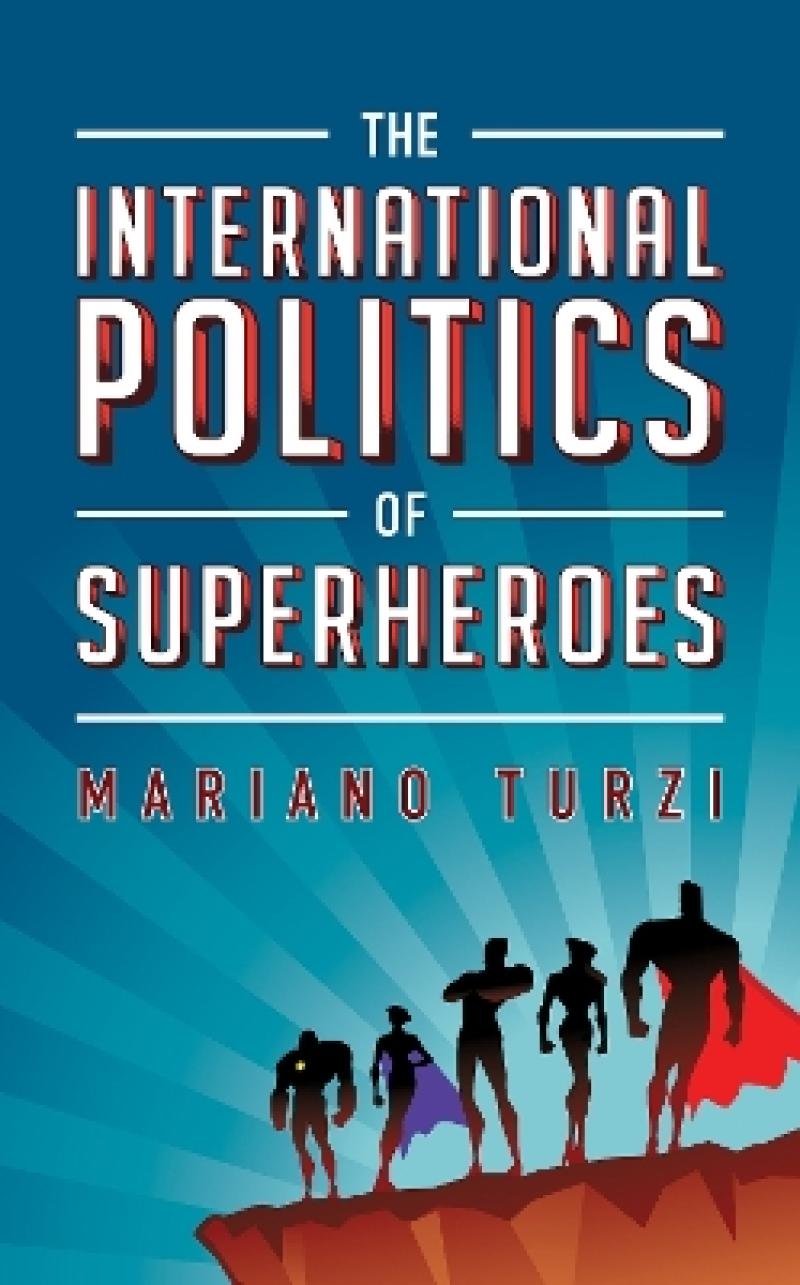Greatly beneficial as a supplementary text for either high school or undergraduate students ...
New Political Science
Part of a larger trend in the field, this book uses pop culture to engage the readers as Dr. Turzi conveys a variety of complex and contested concepts. Students of international relations will learn while having fun with Turzi relying on both Marvel and DC comic book characters to illustrate the many aspects of any international relations course.
- Stephen Saideman, Carleton University,
Your favorite scholars and theories of international relations have come to life and are engaged in a galactic struggle for explanatory power! I can think of no better way to refresh our thinking about the relevance of the dominant lenses to interpreting world politics -- and to inspire the next generation of IR students -- than this timely and entertaining book.
- Dr. Parag Khanna, author of Connectography, The Future is Asian, and MOVE,
The world of superheroes turns out to be an engaging and entertaining guide to the world of international relations theory. Mariano Turzi draws connections between figures like Batman, the Flash, and Doctor Strange and the IR topics like realism, constructivism, and globalization in an accessible and topical way.
- Paul Musgrave, University of Massachusetts Amherst,
In this unique text, Turzi brings the methodologies of the pop cultural turn in IR into the realm of superheroes. Unlike some other texts in the field, however, this volume has a real theoretical breadth. Where some merely tip the proverbial hat to methodological diversity, attempting to shoehorn pop cultural cases into theoretical frameworks, Turzi instead brings a real mastery to the equation, complementing examination of well-known classic cases, such as the Liberalism of the Justice League, with the study of an array of lesser-known hooded heroes. Hence, whether he is exploring the structuralism of the communist Superman of Red Son, the moral ambiguity of globalization embodied by the Black Flash, or the challenges of nuclear proliferation via an analysis of the symbolism of the man-god Dr. Manhattan, Turzi engages in an unusually nuanced manner with vital and compelling cases from the realm of contemporary world politics.
- Nicholas Kiersey, University of Texas, Rio Grande Valley,
Turzi’s The International Politics of Superheroes is a crisp and lively take on international politics through the lens of the superhero. Drawing from a wealth of sources from the first Batman comics to the Marvel Cinematic Universe, his work opens up IR theory, global governance, terrorism, and geopolitics to a new generation raised on the rich and ever-growing mythology of superheroes and supervillains. Despite the inherent conservatism of the classic superhero, Turzi’s nuanced approach enables the reader to grapple with a variety of contemporary concerns in the field of world politics – from intersectionality and decolonization to posthumanism and the Anthropocene epoch.
- Robert Saunders, Farmingdale State College–SUNY,
This book covers the theories of international relations, pressing current issues, as well as the structures and main players in world politics through the medium of superheroes and supervillains.
Foreword
Part I: X-Ray Visions: International Relations Theories
Chapter 1. Liberalism: The JLA
Chapter 2. Batman’s Realism
Chapter 3. Constructivism: Between Harvey Dent and Two-Face
Chapter 4. Red Son and the Power Structuralism
Chapter 5. Doctor Strange’s Intersectional Perspective
Part II: The Multiverses: Global Structure
Chapter 6. Superman: Hegemony and World Order
Chapter 7. Globalization: The Flash
Chapter 8. Cyborg: The World's Digital Duplicate
Chapter 9. Peter's Web: International Organizations
Part III: Why We Fight: Global Issues
Chapter 10. War: Tony Stark, Iron Man, and the Military-Industrial Complex
Chapter 11. Doomsday Clock: Nuclear Proliferation
Chapter 12. Lex Luthor and Victor von Doom: Global Inequality
Chapter 13. X-Men: Migrants and Refugees
Chapter 14. Climate Change: Aquaman in the Anthropocene
Chapter 15. Green Lantern: Battlefield Space
Part IV: The Players: Global Super-Powers and Subpowers
Chapter 16. The United States: Is Captain America Retiring?
Chapter 17. Wonder Woman: The EU’s Soft Power
Chapter 18. Emerging Countries: Welcome to Wakanda
Chapter 19. China: From Fu Manchu to Mandarin
Chapter 20. Is Russia Like the Hulk?
Chapter 21. Latin America's Eternal Return
Chapter 22. Epilogue: Bane's Facemask
References
Notes
Offers a student-friendly approach to teaching politics and international relations.
Capitalizes on the global recognition and appeal of superheroes, especially among young people.
Written in a concise, cogent, and compelling style.
The first book to explicitly address superheroes through the medium of international relations.
